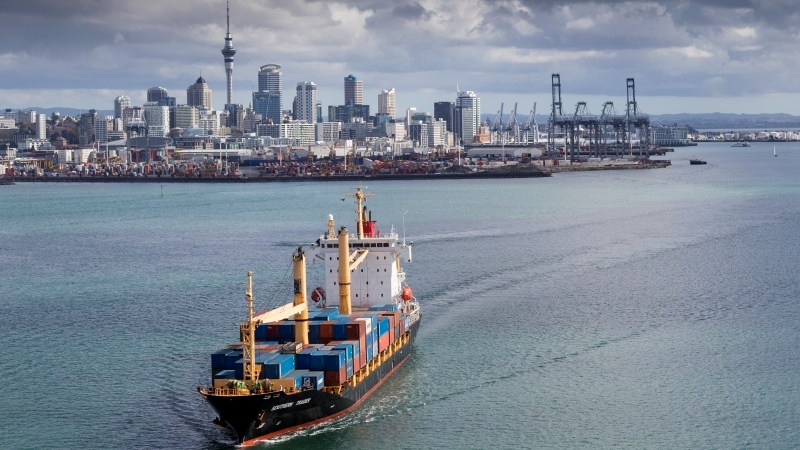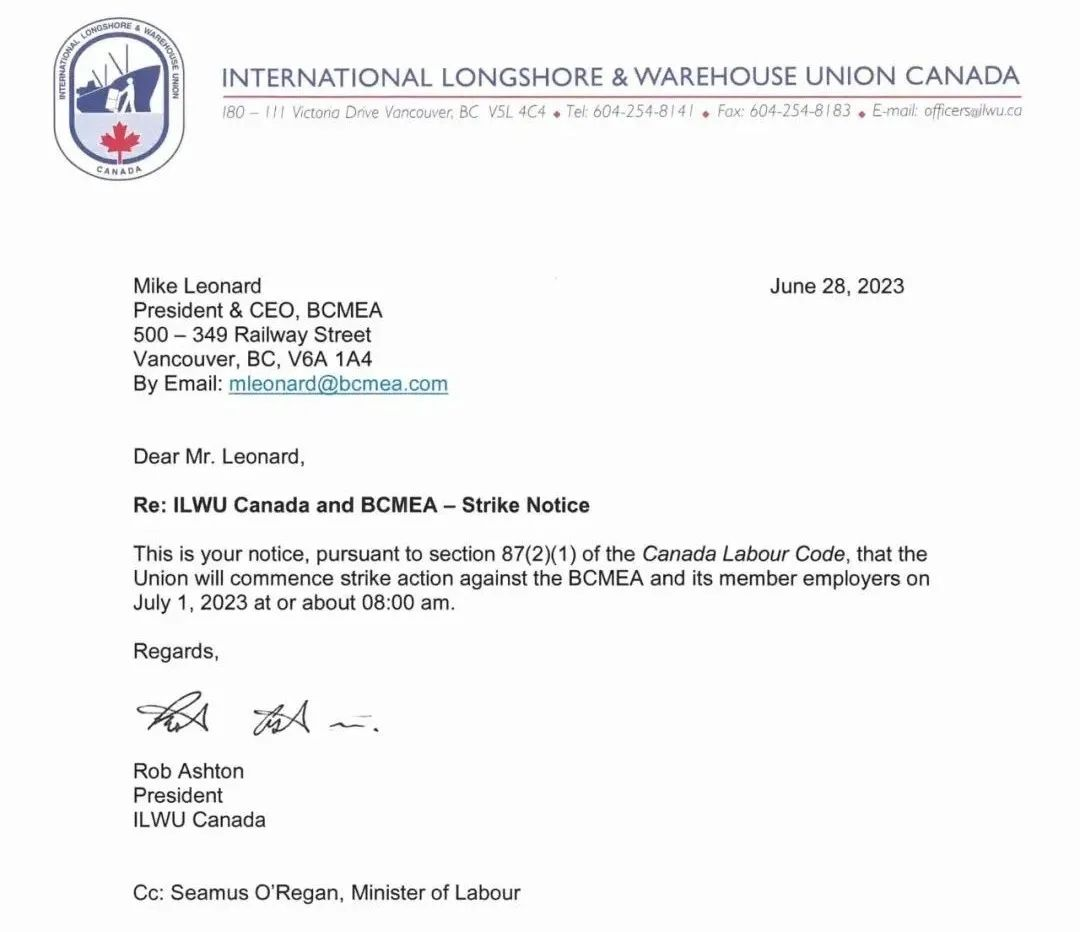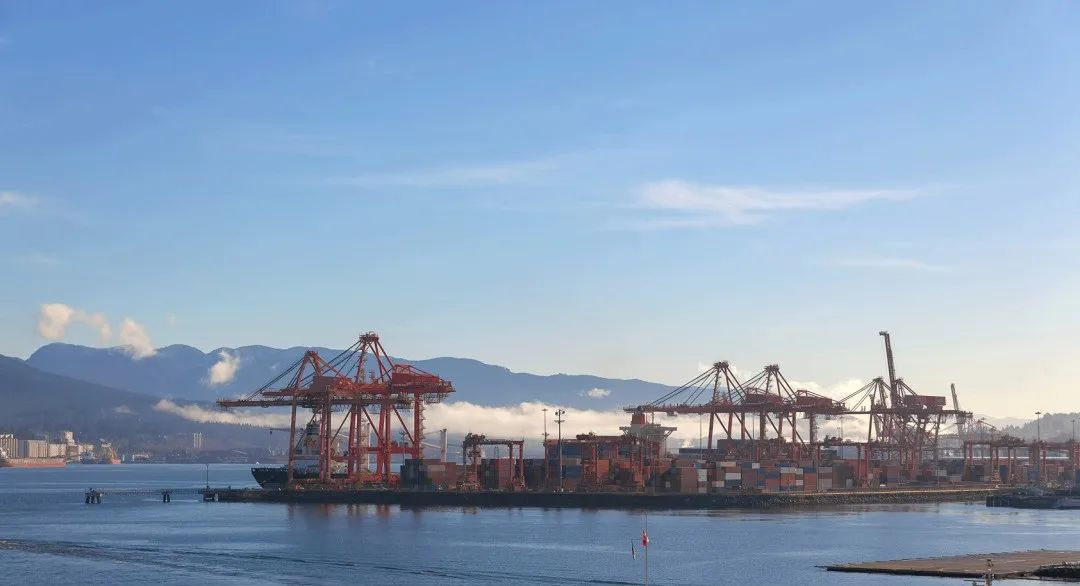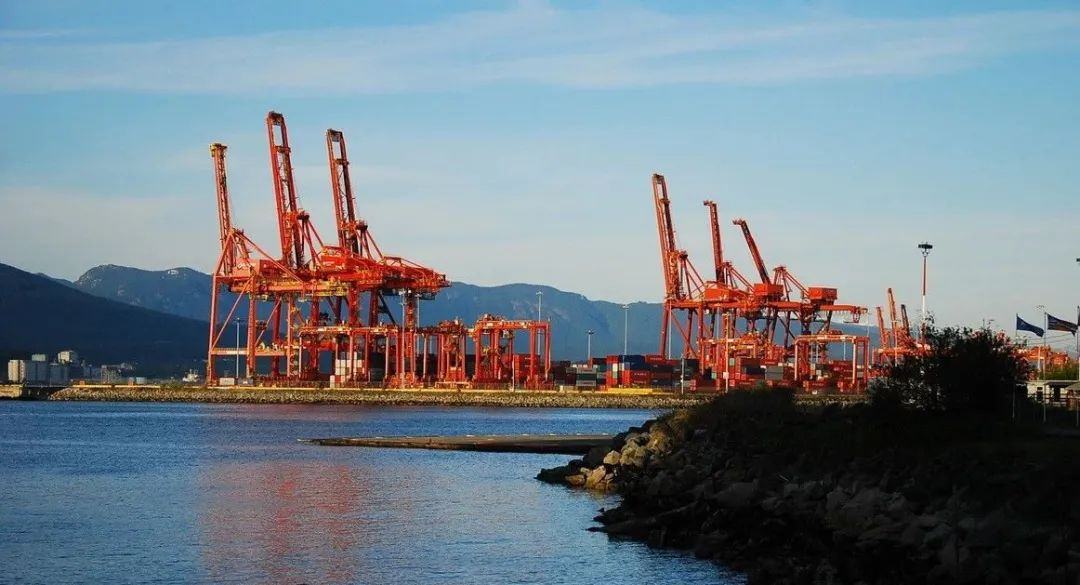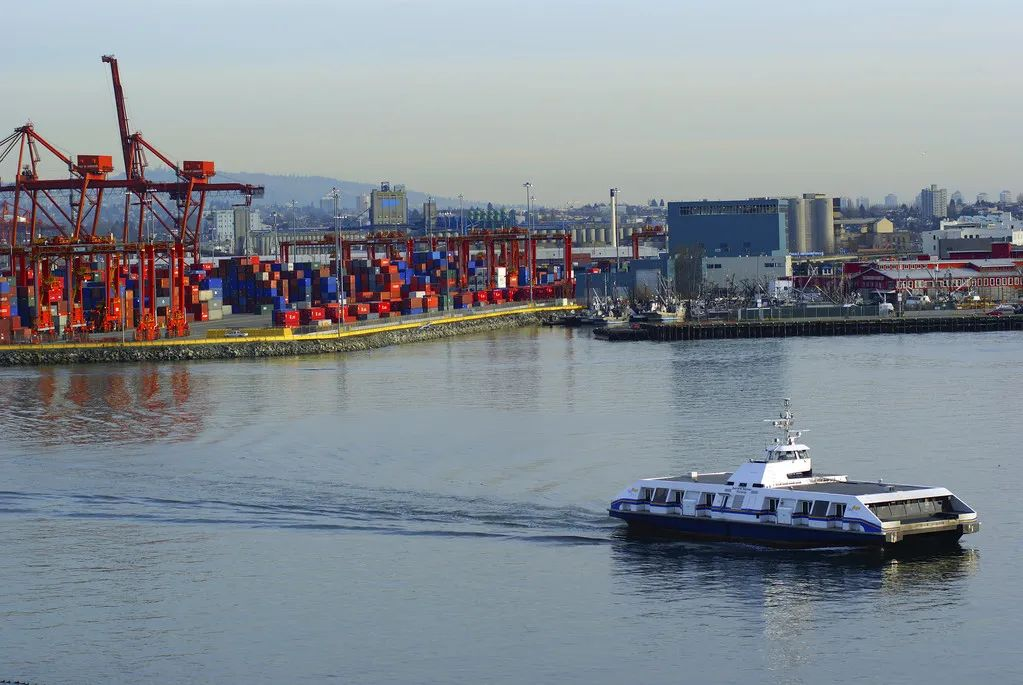July 5th, 2023
According to foreign media reports, the International Longshore and Warehouse Union (ILWU) in Canada has officially issued a 72-hour strike notice to the British Columbia Maritime Employers Association (BCMEA). The reason behind this is the deadlock in collective bargaining between the two parties.
Starting from July 1st, several ports in Canada are expected to experience a major strike
The International Longshore and Warehouse Union (ILWU) in Canada has issued a notice in accordance with the Canadian Labour Code, announcing their plan to commence a strike at the country’s west coast ports starting from July 1st. This is the next step in their aggressive approach to contract negotiations. The British Columbia Maritime Employers Association (BCMEA) has confirmed receiving the official written 72-hour strike notice.
The strike is scheduled to begin at 8:00 AM local time on July 1, 2023, at the west coast ports in Canada. This means that the majority of ports on the Canadian west coast will experience disruptions.
The major affected ports include the two largest gateways, the Port of Vancouver and the Port of Prince Rupert, which are the first and third largest ports in Canada, respectively. These ports serve as key gateways to Asia.
It is reported that approximately 90% of Canadian trade passes through the Port of Vancouver, and around 15% of U.S. import and export goods are transported through the port annually.
The west coast ports in Canada handle goods worth nearly $225 billion each year. The transported items include a wide range of consumer goods, from clothing to electronic products and household goods.
The potential strike action has raised concerns and worries about the impact on Canada’s supply chain and the flow of domestic and international goods. British Columbia Premier David Eby expressed his deep concern about the potential effects of the strike on their ports. He stated that the province has been facing rising costs throughout the pandemic due to inflation and supply chain issues, and a strike could further increase costs, which residents cannot afford.
However, according to Canadian labor laws, grain shipments should not be affected by the strike. The BCMEA also mentioned that they would continue to provide services to cruise ships. This means that the strike would primarily focus on container ships.
The reason for the strike is that both parties have been unable to reach a new agreement
Since February of this year, there has been an ongoing process of free collective bargaining between ILWU Canada and the British Columbia Maritime Employers Association (BCMEA) in an attempt to renew the industry-wide collective agreement that expired on March 31, 2023. However, since the expiration of the agreement, the two parties have been unable to reach a new agreement.
Prior to this, both parties were in a cooling-off period, which ended on June 21st. During this period, the union members voted with 99.24% in favor of the strike action scheduled for this month.
The previous negotiations involved two coastal collective agreements, one with the Longshore Locals and the other with Local 514 Ship&Dock Foremen, representing over 7,400 dockworkers and foremen in the Canadian west coast ports. These agreements cover various aspects such as wages, benefits, working hours, and employment conditions.
The BCMEA represents 49 private-sector waterfront employers and operators in British Columbia.
In response to the strike notice, Canadian Minister of Labour Seamus O’Regan and Minister of Transport Omar Alghabra issued a joint statement emphasizing the importance of reaching an agreement through negotiations.
“We strongly encourage all parties to return to the bargaining table and work together towards an agreement. That is the most important thing right now,” the joint statement read.
Since March 28, 2023, BCMEA and ILWU Canada have been engaged in mediation and conciliation efforts after receiving the dispute notice submitted by ILWU Canada.
BCMEA maintains that it has put forth sincere proposals and is committed to making progress in reaching a fair agreement. Despite the strike notice, BCMEA expresses its willingness to continue negotiations through the federal mediation process in order to find a balanced agreement that ensures port stability and uninterrupted flow of goods for Canadians.
On the other hand, ILWU Canada has stated that they are seeking a fair agreement to achieve their goals, which include preventing job erosion through outsourcing, protecting dockworkers from the impact of port automation, and safeguarding them from the effects of high inflation and rising living costs.
The union highlights the contributions of dockworkers during the pandemic and expresses disappointment with BCMEA’s concession demands. “BCMEA and its member employers have refused to negotiate on key issues,” ILWU Canada stated in their statement.
The union calls on BCMEA to drop all concessions and engage in genuine negotiations to resolve the dispute while respecting the rights and conditions of dockworkers.
Furthermore, just weeks before the recent strike action, the ILWU on the U.S. West Coast reached a preliminary agreement on a new labor contract with port terminal operators represented by the Pacific Maritime Association, ending over a year of negotiations. This had significant implications for port terminal operators.
Philip Davies, the head of Davies Transportation Consulting Inc., a transportation economics firm in Vancouver, stated that agreements between maritime employers and port workers are typically long-term agreements that involve “quite tough bargaining.”
Davies mentioned that if negotiations are unsuccessful, the union has several options besides resorting to a full-scale strike to disrupt port operations. “They could disrupt the operation of a terminal, or they may not be able to supply enough labor for a shift.”
“Of course, the employer’s response may be to lock the union out and shut down the terminal, either of which could happen.”
A trade analyst expressed that the potential strike could not only have a significant impact on the Canadian economy but also potentially have dire consequences for the global economy.
Post time: Jul-05-2023







